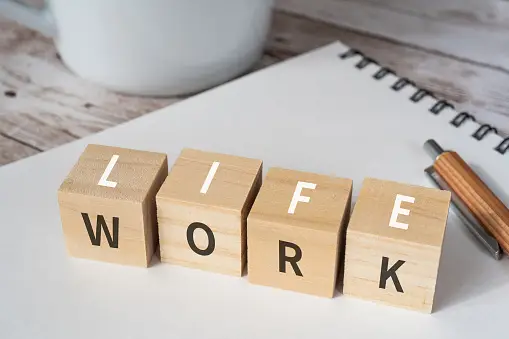
Work-life balance is a concept that refers to the equilibrium between professional responsibilities and personal life. It is an essential aspect of an individual’s overall well-being and happiness. The idea is not about an equal balance but finding the right harmony that enables one to feel fulfilled and content in both professional and personal spheres. The impact of work-life balance on overall happiness is profound, influencing mental health, relationships, productivity, and life satisfaction.
Understanding Work-Life Balance
To appreciate the impact of work-life balance on happiness, it’s crucial to understand what it entails. Work-life balance involves managing work responsibilities alongside personal interests, family commitments, leisure activities, and self-care. It’s about having the flexibility to get things done in your professional life while having time and energy to enjoy your personal life without undue stress or overcommitment.
Impact on Mental Health
One of the most significant impacts of work-life balance on overall happiness is its effect on mental health. An imbalance, where work overshadows life, can lead to stress, burnout, anxiety, and depression. Chronic stress from overworking can affect cognitive functions, leading to decreased productivity and the ability to make sound decisions, creating a vicious cycle of inefficiency and increased work hours. Conversely, a good balance can lead to improved mental health, as individuals have time to relax, recharge, and engage in activities that bring them joy, leading to increased happiness.
Influence on Physical Health
Work-life balance also has a direct impact on physical health, which is intrinsically linked to happiness. Overworking and the associated stress can result in poor sleep patterns, unhealthy eating habits, lack of physical exercise, and increased susceptibility to illnesses. On the other hand, a balanced life allows for regular exercise, proper rest, and healthier lifestyle choices. Engaging in physical activities and hobbies outside of work can boost endorphin levels, improving mood and overall well-being.
Effects on Relationships and Social Life
Personal relationships and social interactions are crucial for human happiness. A poor work-life balance often means less time for family, friends, and social activities, which can lead to strained relationships and feelings of isolation or loneliness. Quality time spent with loved ones and participating in social activities provides emotional support, strengthens bonds, and enhances life satisfaction. Achieving a work-life balance allows individuals to nurture their relationships, contributing significantly to their overall happiness.
Contribution to Job Satisfaction and Productivity
Ironically, a good work-life balance can enhance job satisfaction and productivity, contrary to the belief that longer hours lead to more success. When employees are happy and well-rested, they are more engaged, creative, and efficient in their work. Companies that promote work-life balance often see lower turnover rates, higher morale, and better team dynamics. The sense of fulfillment from work and personal life contributes to overall happiness, creating a positive feedback loop that benefits both the individual and the organization.
Personal Fulfillment and Self-Identity
Work-life balance is crucial for personal fulfillment and the development of self-identity beyond professional achievements. Engaging in hobbies, learning new skills, and pursuing interests contribute to a sense of accomplishment and identity. These activities not only provide joy and satisfaction but also help in coping with work-related stress, leading to a more rounded and happier individual.
Cultural and Individual Variations
It’s important to note that the concept of work-life balance and its impact on happiness can vary significantly across different cultures and individuals. What constitutes balance for one person might be different for another, influenced by personal values, career aspirations, family responsibilities, and cultural norms. Recognizing and respecting these differences is crucial in the discourse on work-life balance and happiness.
Conclusion
In conclusion, work-life balance plays a pivotal role in determining overall happiness. It impacts mental and physical health, relationships, job satisfaction, and personal fulfillment. Achieving this balance requires conscious effort, support from employers, and societal recognition of its importance. In a world that often glorifies busyness and professional achievements, remembering the value of personal time, relationships, and well-being is essential for a happier and more fulfilling life.
Click here to visit website




